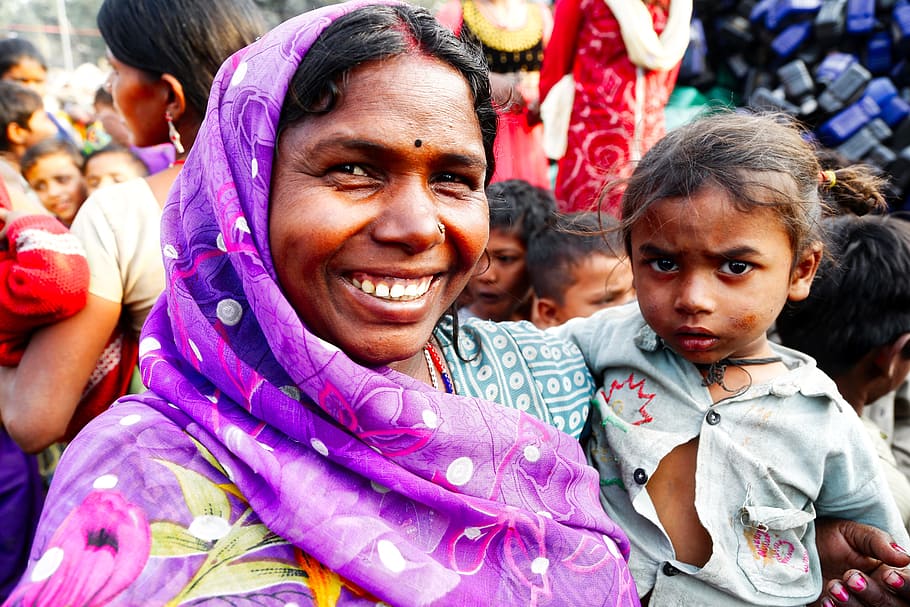ON October 2nd each year, the world comes together to observe International Day of Non Violence, a day dedicated to honoring the principles of peace, tolerance and non violence. This significant date marks the birthday of Mahatma Gandhi, one of the most prominent figures in the history of global peaceful resistance and social change. Established by the United Nations in 2007, International Day of Non Violence serves as a global reminder of the power of peaceful efforts in achieving development and improving the lives of people around the world. This article explores the origins of this day, Mahatma Gandhi’s remarkable legacy, and examines ways in which individuals and NGOs can work towards their objectives of development and bettering lives through peaceful means.
Mahatma Gandhi and his legacy of non violence
Mahatma Gandhi, born on October 2 1869, is often referred to as the “Father of the Nation” in India. He was a visionary leader, philosopher and activist who played a pivotal role in India’s independence. Gandhi’s enduring legacy is his unwavering commitment to non violence as a powerful tool for social change.
Gandhi’s philosophy of non violence, known as satyagraha, emphasizes the power of truth and moral force. He firmly believed that peaceful resistance could bring about profound change in the face of desperate need and injustice.
Establishment of International Day of Non Violence
In recognition of Mahatma Gandhi’s remarkable contributions to the promotion of non violence and peace, the United Nations General Assembly passed a resolution on June 15 2007, to establish International Day of Non Violence. The choice of October 2nd, Gandhi’s birthday, as the date for this observance is a fitting tribute to his enduring legacy.
International Day of Non Violence serves as a reminder of Gandhi’s teachings and principles, emphasizing the importance of resolving conflicts through peaceful means and promoting tolerance and understanding among nations and individuals alike. It is a day to reflect on the significance of non violence in today’s world, where violence exists in the form of poverty and all that it leads to.
5 ways to promote development and improve lives through peaceful efforts
Based on Mahatma Gandhi’s quote “poverty is the worst form of violence”, here are 5 areas that are caused by poverty:
Starvation: Poverty breeds hunger, a silent and pervasive violence that gnaws at the very core of human dignity. When resources are scarce, nutritious food becomes a luxury. Families in poverty struggle daily to secure their next meal, leading to malnutrition, stunted growth, and a cycle of suffering that perpetuates poverty’s grip.
Exploitation: The vulnerability borne from poverty often exposes individuals to exploitation. Low-paying jobs, hazardous working conditions and the absence of workers’ rights perpetuate this violence. Poverty forces people into situations where they are exploited, trapped in a relentless cycle of economic hardship.
Homelessness: Poverty can strip individuals of the most fundamental human right – shelter. Homelessness is a manifestation of this violence, leaving countless people exposed to the elements, social isolation and a constant struggle for survival. Without a safe and stable home, breaking free from poverty becomes an elusive dream.
Disease: Poverty fuels the spread of disease, rendering communities defenseless against health crises. Lack of access to clean water, sanitation and healthcare services exacerbates suffering. Disease becomes a formidable weapon in poverty’s arsenal, disproportionately affecting those who are already disadvantaged.
Illiteracy: Poverty perpetuates illiteracy, an insidious form of violence that denies individuals the ability to access knowledge and opportunities. Without education, people remain trapped in a cycle of ignorance, unable to break free from the chains of poverty. It robs them of the chance to realize their full potential and contribute to society’s progress.
What non violence achieves in the social sector
Non violence encourages participatory and community-driven development. NGOs can work with local communities to identify their needs and priorities, enabling them to take ownership of development initiatives. This approach fosters self reliance and sustainability. NGOs can collaborate with other organizations and governments to address global challenges such as climate change, poverty and public health crises through peaceful and cooperative means. Individuals can support international cooperation and diplomacy, advocating for peaceful solutions to international conflicts and crises.
International Day of Non Violence serves as a poignant reminder of the enduring power of peaceful efforts in promoting development and improving lives. Gandhi’s legacy of non violence continues to inspire individuals and NGOs worldwide to work towards positive change through peaceful means. In a world where conflicts and challenges persist, the principles of non violence, tolerance and understanding are more relevant than ever. Individuals and NGOs have a crucial role to play in advancing these principles and contributing to a more peaceful and just society. By embracing non violence, we can collectively strive for a world where development and the betterment of lives are achieved through cooperation, compassion and the pursuit of justice for all. Support these fundraisers on Give to take a step toward eradication poverty, the worst form of violence:
–
Give’s mission is to “make giving bigger and better.” Give is the most trusted donation platform in India for fundraisers and crowdfunding campaigns. Through our technology solutions, we enable individuals and organisations to fundraise and donate to a cause, charity or NGO with trust and convenience. Give’s community of 2.7M+ individual donors and 300+ organisations supports 3,000+ verified nonprofits with 80G deduction and serves 15M+ people across India. Find a fundraiser today!

Give exists to alleviate poverty by enabling the world to give. Established in 2000, Give, together with its partners, is the largest and most trusted giving platform in India. Give enables individuals and organizations to raise and donate funds conveniently to any cause they care about, with offerings including crowdfunding, corporate giving, cause marketing, and philanthropy consulting. Give’s community of 2.6M+ donors supports 3,000+ verified nonprofits, serving 15M+ people across the country.
Discover more from
Subscribe to get the latest posts sent to your email.

